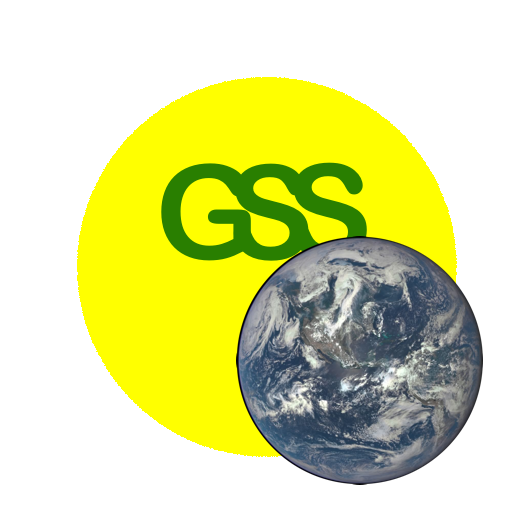Category: Related Articles
OZ7C. Stay Current—Expedition to Antarctica
Staying current for Chapter 7 { Ozone Contents } Analyzing the Antarctic Ozone Hole. Earth Exploration Toolbook activity. Use satellite images and ImageJ software to show how much ozone is in the atmosphere over the Southern Hemisphere, identify the ozone “hole” that develops over this region every spring, and with spreadsheet, graph its size from year […]
OZ6C. Stay Current—The Loss of ’84 and the Surprise of ’85
Staying current for Chapter 6 { Ozone Contents } 2019-01-22. Podcast: Uncovering the Ozone Hole. By Nanci Bompey, Eos/AGU. 2012-Dec. The Ozone Problem is Back – And Worse Than Ever | Sharon Begley, Smithsonian Magazine. Excerpt: Jim Anderson of Harvard University … Since 2001, …had been studying powerful thunderstorms by packing instruments into repurposed spy planes and B-57 […]
OZ5C. Stay Current—A Mystery Solved
Staying current for Chapter 5 { Ozone Contents } 2012 March 12. F. Sherwood Rowland, Cited Aerosols’s Danger, Is Dead at 84 | By Felicity Barringer, The NY Times. Excerpt: F. Sherwood Rowland, whose discovery in 1974 of the danger that aerosols posed to the ozone layer was initially met with disdain but who was ultimately vindicated […]
OZ4C. Stay Current—CFCs Are Invented
Staying current for Chapter 4 { Ozone Contents } 2023-03-15. The Brilliant Inventor Who Made Two of History’s Biggest Mistakes. [https://www.nytimes.com/2023/03/15/magazine/cfcs-inventor.html] By Steven Johnson, The New York Times. Excerpt: While The Times praised him as “one of the nation’s outstanding chemists” in its obituary, today [Thomas Midgley Jr.] is best known for the terrible consequences of […]
OZ3C. Stay Current—The Dangers of UV to Living Things
Staying current for Chapter 3 See non-chronological resources for this chapter. { Ozone Contents } 2025-06-27. UV-C light kills nearly everything—except this unusual organism. By Hannah Richter, Science. Excerpt: …UV light that keeps beachgoers reaching for the sunblock isn’t even the worst the Sun sends our way. Lucky for us, Earth’s ozone layer blocks the […]
OZ2C. Stay Current—Ozone in Nature
Staying current for Chapter 2 { Ozone Contents } 2023-05-30. Plants Leave Chemical Fingerprints on an Ozone-Depleting Gas. [https://eos.org/research-spotlights/plants-leave-chemical-fingerprints-on-an-ozone-depleting-gas] By Sarah Stanley, Eos/AGU. Excerpt: Methyl chloride (CH3Cl) is one of the most common chlorine-based gases in Earth’s atmosphere. Along with related chemicals, it depletes the ozone layer, exposing life on the planet to more of the Sun’s ultraviolet […]
OZ1C. Stay Current—Strange Happenings
Staying current for Chapter 1 { Ozone Contents } 24 December 1997. Ozone Depletion FAQSample Question–Subject: 1.3) How does the composition of the atmosphere change with altitude? (Or, how can CFC’s get up to the stratosphere when they are heavier than air?) Answer: In the earth’s troposphere and stratosphere, most _stable_ chemical species are “well-mixed” – […]
Bibliography for Life and Climate
{ Life and Climate Contents } { All GSS Books }
LC13C. Stay Current—What Does Earth’s Past Tell Us About Our Future?
Staying current for Chapter 13 { Life and Climate Contents } 2023-03-16. Tonga Eruption May Temporarily Push Earth Closer to 1.5°C of Warming. [https://eos.org/articles/tonga-eruption-may-temporarily-push-earth-closer-to-1-5c-of-warming] By J. Besl, Eos/AGU. Excerpt: The underwater eruption of Hunga Tonga–Hunga Ha‘apai sent megatons of water vapor into the stratosphere, contributing to an increase in global warming over the next 5 […]
LC12C. Stay Current—Climate & Culture
Staying current for Chapter 12 { Life and Climate Contents } 2025-12-04. Medieval volcano may have indirectly sparked Europe’s Black Death. By Andrew Curry, Science. Excerpt: The Black Death is the single most deadly documented pandemic in human history. In 1347 C.E., it spread from a few Italian port cities to nearly every corner of […]

